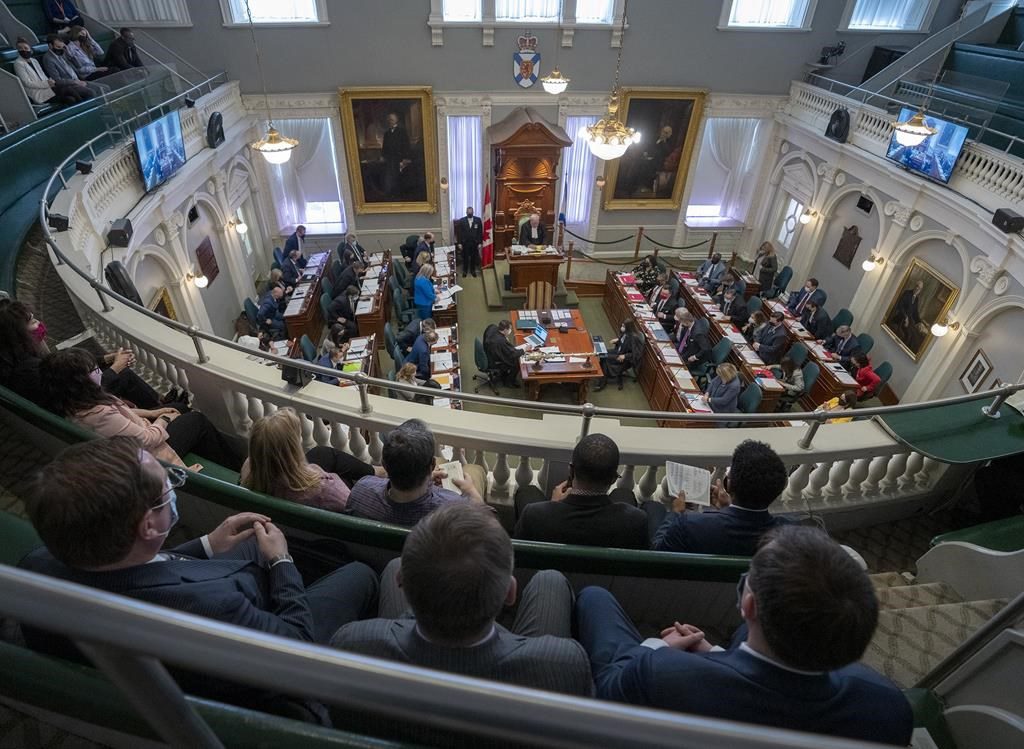The government of Progressive Conservatives in Nova Scotia finished their spring session on Friday after presenting a budget and passing only two bills.
During the session that started on Feb. 27, the government changed how the electrical grid is run and passed a bill that includes measures from the budget and changes 15 provincial laws.
However, due to increasing public opposition, the Tories decided not to move forward with a bill that would have consolidated the Town of Antigonish and Antigonish County.
“As a government, you need to have the courage to acknowledge when there's a different or better way to do something,” Premier Tim Houston told reporters on Friday. “We just listen to Nova Scotians.”
The government backed away from the municipal consolidation bill on Thursday, following loud opposition during a public meeting in Antigonish County. Earlier this year, both municipal councils had voted to proceed with consolidation.
“It became evident from talking to people that there was a widespread feeling in the community that they didn’t have enough information,” said Houston.
The government also “paused” controversial plans for a subsidy for wine bottlers, which the province’s wineries said undermined their operations. Houston made the announcement before a large group of wine growers in the foyer of the legislature after a nearly two-hour meeting with industry representatives the day before and after days of questioning by the opposition in the house of assembly.
Zach Churchill, the Opposition Liberal Leader, criticized the government’s performance during the session, saying it did little but make a “series of flip-flops.”
“This is not a government that does their homework … and as soon as they take a bit of political heat, because they didn’t do the work in advance, they turtle. They get scared and they reverse course,” said Churchill. “I really think it’s a problematic way to govern.”
NDP Leader Claudia Chender was also critical, pointing out that the government didn’t listen to the public when it announced a day before the session began that it wouldn’t bring into force the Coastal Protection Act, which had been passed but not proclaimed in 2019.
The government also refused to remove a provision in the omnibus-style Financial Measures Act that would give the health minister access to patient health information, despite concerns from Doctors Nova Scotia, the College of Physicians and Surgeons of Nova Scotia and sexual assault survivor Carrie Smith of Digby, N.S., who made an emotional presentation before the legislature’s law amendments committee. Smith said the legislative change was too broad and would result in a lack of trust by patients.
The government defended the legislation saying the information would be gathered in order to help patients access their own health records while helping to better manage the system, but Chender said such a sensitive issue shouldn’t have been buried in a sweeping bill.
She said that clause 110 of a long bill was never emphasized for anyone, and there are many other hidden things in the bill because they want to finish their work quickly.
The $16.5 billion budget focused heavily on health spending and also adjusted provincial income tax rates to inflation to help with the increasing cost of living. Additional measures included funding to address homelessness and a new lunch program for students in public schools.
Houston stated that there are significant investments for the people of Nova Scotia, which is their main concern.
The government introduced a fourth bill to create a new volunteer corps to assist with natural disasters, intending to pass it during the fall sitting of the legislature.
This article by The Canadian Press was originally published on April 5, 2024.



